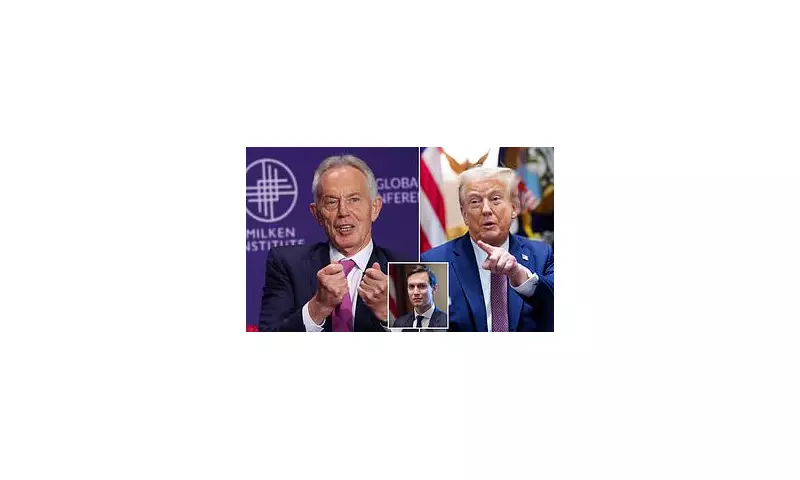
In a move that underscores the enduring influence of unofficial diplomacy, former British Prime Minister Tony Blair embarked on a covert mission to the heart of American power. The ex-Labour leader was secretly ushered into the White House for a high-stakes meeting with former President Donald Trump.
The clandestine discussion, confirmed by Blair's own organisation, the Tony Blair Institute for Global Change, centred on the escalating humanitarian crisis in Gaza. Mr. Blair's objective was clear: to persuade the influential Republican figure to publicly advocate for a sustained ceasefire and to champion the long-stalled two-state solution.
The Agenda: Peace, Power, and Post-Conflict Planning
The meeting's agenda was formidable, focusing on three critical pillars for regional stability:
- An Immediate Ceasefire: Pushing for an urgent halt to the violence to allow vital humanitarian aid into the devastated Gaza Strip.
- A Pathway to Palestinian Statehood: Reviving the foundational two-state solution as the only viable long-term resolution to the conflict.
- Post-War Governance: Strategising on a framework for governing Gaza after the conflict concludes, a topic of intense international debate.
This outreach signifies a calculated recognition of Donald Trump's unique sway over a significant portion of the American electorate and his potential role in shaping future U.S. foreign policy, should he return to office.
Blair's Enduring Diplomatic Role
Despite leaving Downing Street over 17 years ago, Tony Blair has maintained a formidable presence on the global stage. His Institute for Global Change operates in over 40 countries, advising governments on policy and governance. His continued engagement in Middle Eastern affairs, particularly through his role as former Quartet envoy, provides him with a level of credibility and access that few other figures possess.
This secret meeting highlights how former leaders often operate powerful backchannels, bypassing official government-to-government communications to advance their diplomatic goals.
The White House Response and Political Repercussions
While the Trump camp has remained characteristically tight-lipped about the specifics of the conversation, the mere occurrence of the meeting sends a powerful message. It demonstrates that key global players are actively seeking Trump's support to de-escalate one of the world's most volatile situations.
The move is likely to be scrutinised in the UK, where Blair remains a divisive figure. It raises questions about the appropriate role for former prime ministers in sensitive international diplomacy, especially with foreign leaders who are not currently in office.
As the war in Gaza continues with a devastating human cost, the involvement of figures like Blair and Trump illustrates the complex, multi-layered nature of international peacemaking, where official and unofficial diplomacy increasingly intertwine.





